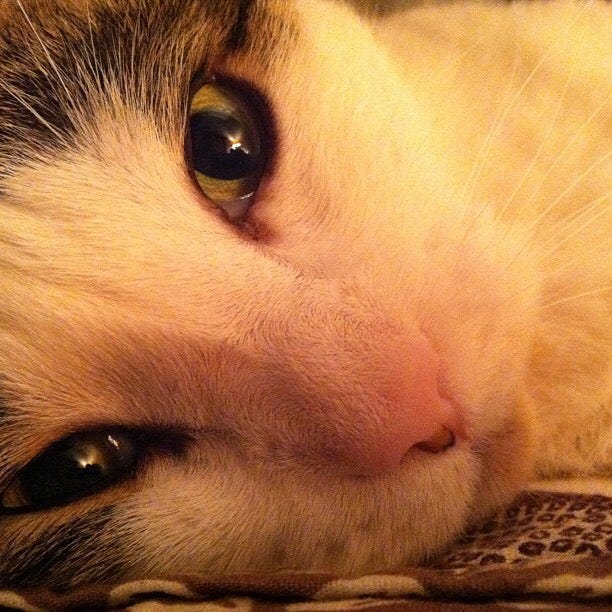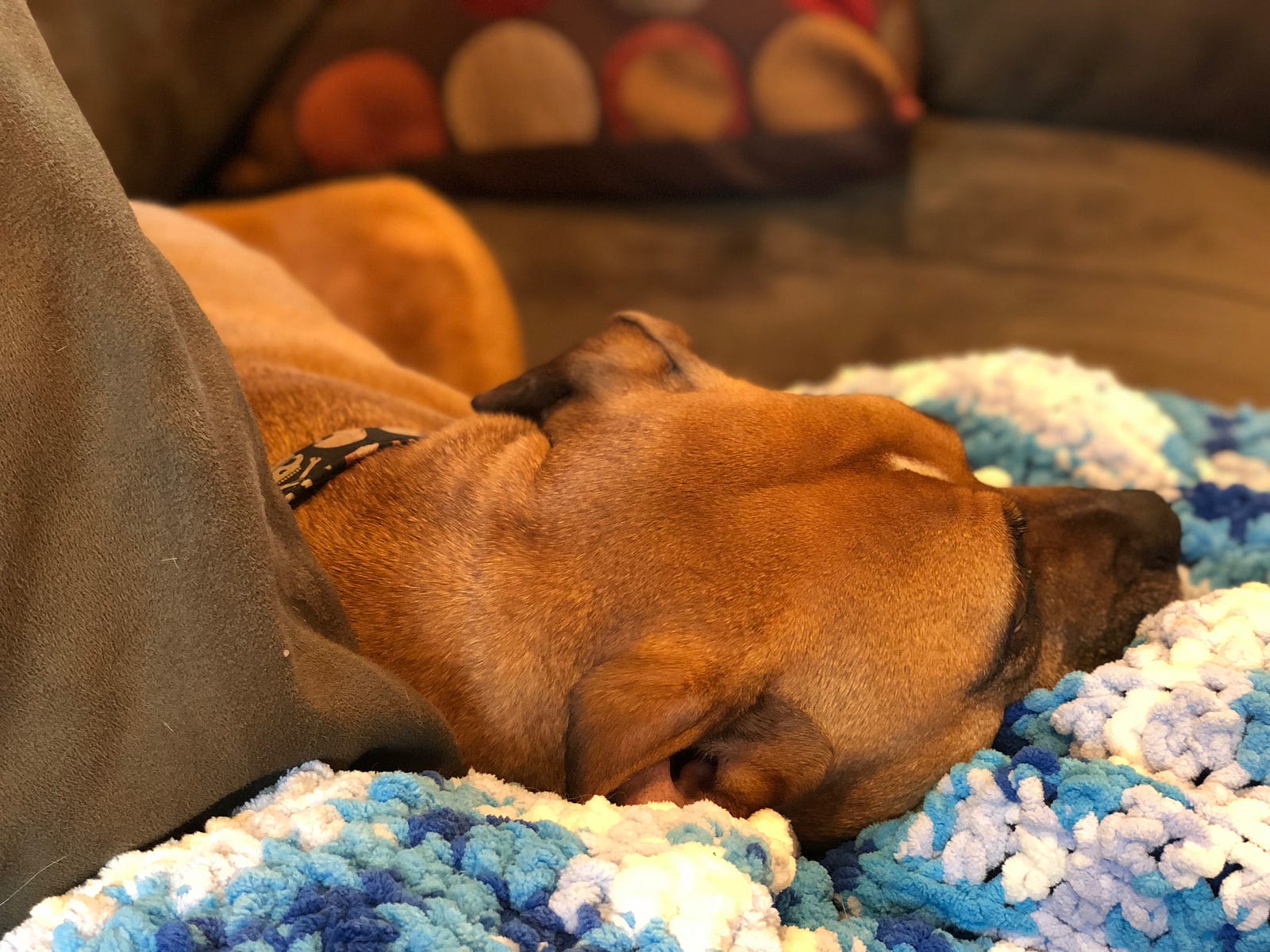 Simon came home from the hospital with a cancer diagnosis and an upper respiratory infection, and we had to keep him isolated from the rest of the cats until the later was no longer infectious. I spent a lot of time thinking about the paradox of Schrödinger’s Cat while Simon was in isolation, always wondering what would await me when I opened the door to his quarantine area:
Simon came home from the hospital with a cancer diagnosis and an upper respiratory infection, and we had to keep him isolated from the rest of the cats until the later was no longer infectious. I spent a lot of time thinking about the paradox of Schrödinger’s Cat while Simon was in isolation, always wondering what would await me when I opened the door to his quarantine area:
The bathroom in which Simon currently resides is at the top of the stairs, so I pass it several times daily. Sometimes I continue with whatever I was doing the had me going up or down the stairs in the first place. Sometimes I come in and sit with him for a few minutes, like I’m doing now. Most times, though, I stand in front of the door, debating whether to open it.
More reflections on slowly losing a beloved pet are on Medium.
 When I wrote this essay about my discomfort with laughing at the pain of others, I just felt like I had something I needed to get off my chest. I wasn’t expecting it to resonate with strangers the way it did, but clearly something hit a nerve.
When I wrote this essay about my discomfort with laughing at the pain of others, I just felt like I had something I needed to get off my chest. I wasn’t expecting it to resonate with strangers the way it did, but clearly something hit a nerve. I’ve written a lot about the pelvic pain disorder I was diagnosed with in 2013, so writing about pelvic and sexual health has become a passion of mine. After reading an article about the lack of knowledge most mothers have around what childbirth does to their bodies, and how frequently their concerns are ignored by their physicians, I wrote:
I’ve written a lot about the pelvic pain disorder I was diagnosed with in 2013, so writing about pelvic and sexual health has become a passion of mine. After reading an article about the lack of knowledge most mothers have around what childbirth does to their bodies, and how frequently their concerns are ignored by their physicians, I wrote: